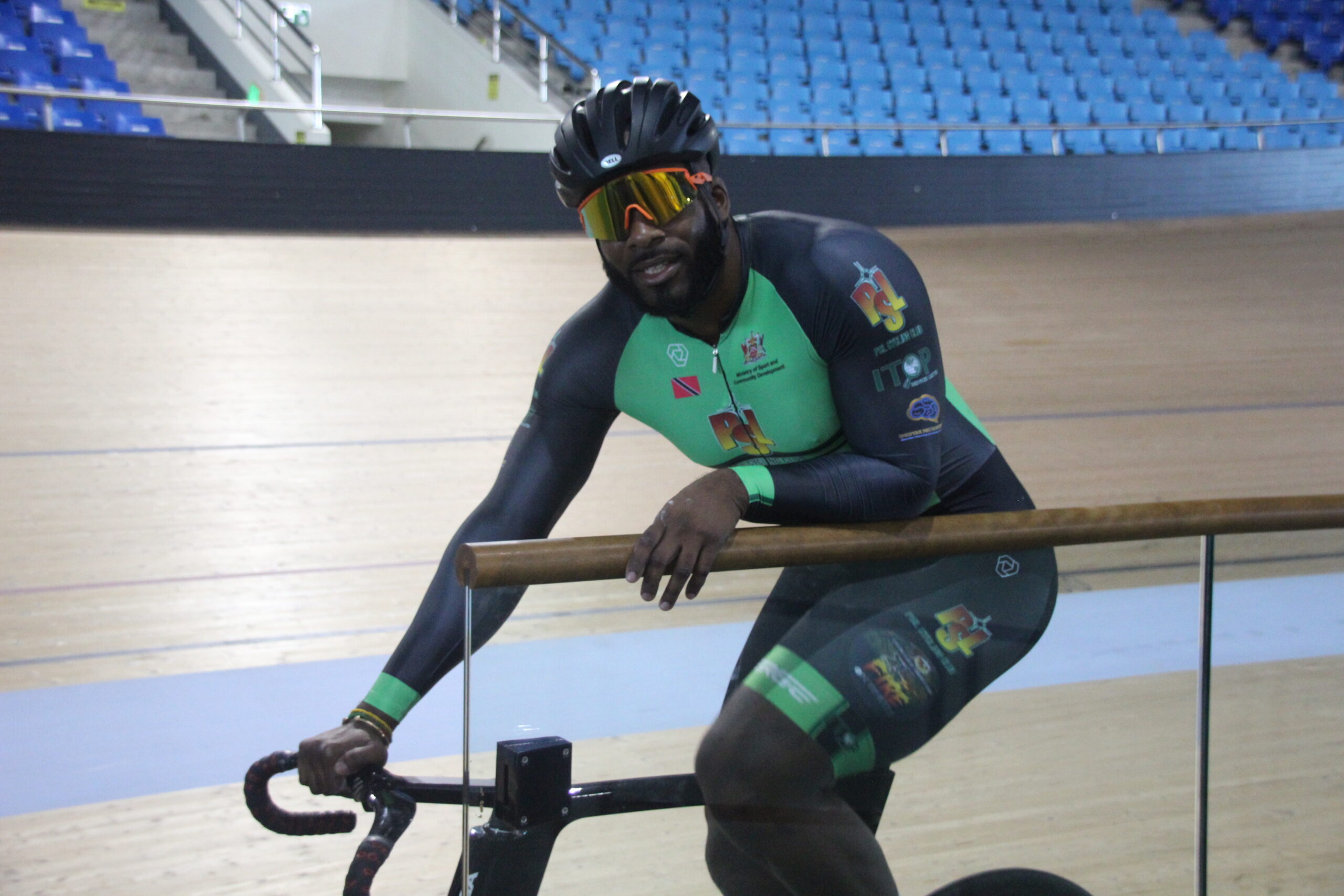Sprinter Quincy Alexander has had an interesting journey from his days as a promising national junior cyclist. The 6’ 3” (six feet, three inches) cyclist has faced injuries and other challenges in the sport but is now eyeing a resurgent 2024 after making strides last year.
The Sports Company of Trinidad and Tobago (SporTT) caught up with Alexander during a recent training session at the National Cycling Velodrome, where he shares some life lessons he’s learned, his goals for 2024, his view of life beyond cycling, whether he could wear a bobsled uniform and more.
Q&A – Quincy Alexander
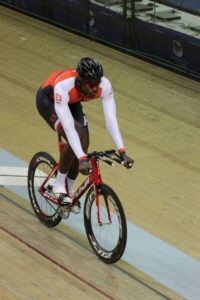
Q: How does Quincy see his recent performances?
In 2021 I switched coaches. From there, I had the opportunity to begin working with a coach from Germany, Bill Hoch; he coaches their national team. From that I had to almost revise everything and rebuild. Last year, we saw some fruit from that. In 2022, I spent some time in Germany. I had to switch some positioning, switch my bike, and last year we started to see some improvements. Overall, my times were better, it was faster, and just late last year I spent some time in Spain training with a friend who has the same coach. We were fortunate enough that the World champion and Olympic champion Jeffrey Hoogland was also there training with us, so being around these people is good motivation. You see how they think, and you also understand, even from their perspective how you can be a holistic person and not just [be] submerged in a sport.
Q: What’s your biggest lesson in sport?
I’ve had lots of ups and downs. As athletes you would get injuries and [face] other issues. Also, as you get older, you understand how to approach things a lot better. I could remember when I was 15, I was saying ‘when I’m 25, I want to have this house’ and all these different things, but obviously at that age you’re not well-equipped with the knowledge of what life is about. I’m also friends with Goerge Bovell, and we have so many different conversations. Especially with your sport, this is [only] one part of your life and it’s almost as if you have to have this warrior energy and this warrior spirit [to compete], but it should not be the entire picture. [Otherwise], when there’s no more sport, there’s no more you.
Q: The importance of balance in life…
This is where we see sometimes so many athletes fail to make that transition from their life as an athlete, because they’re not sure what is the next step because they were engulfed and not seeing that there’s life beyond sport. So, this is what I try to do, especially when I’m [at the National Cycling Velodrome] training. I go full gas, but outside of training, I am a different person. I’m not focused on my phone, I’m doing what I need to do but I enjoy time with my mom, my dad, my girlfriend; for me, I take a big part [of my time] to get in touch with myself spiritually. The first time I met [former national swimmer, Olympic bronze medallist] George Bovell was in 2014. He would have given me so much different point of views, so many different stories and conversations on his career, because he is one of the greatest athletes that we’ve ever had here [in T&T]. I understand you have to look at different areas, not only in sport, but my aim is being a holistic person.
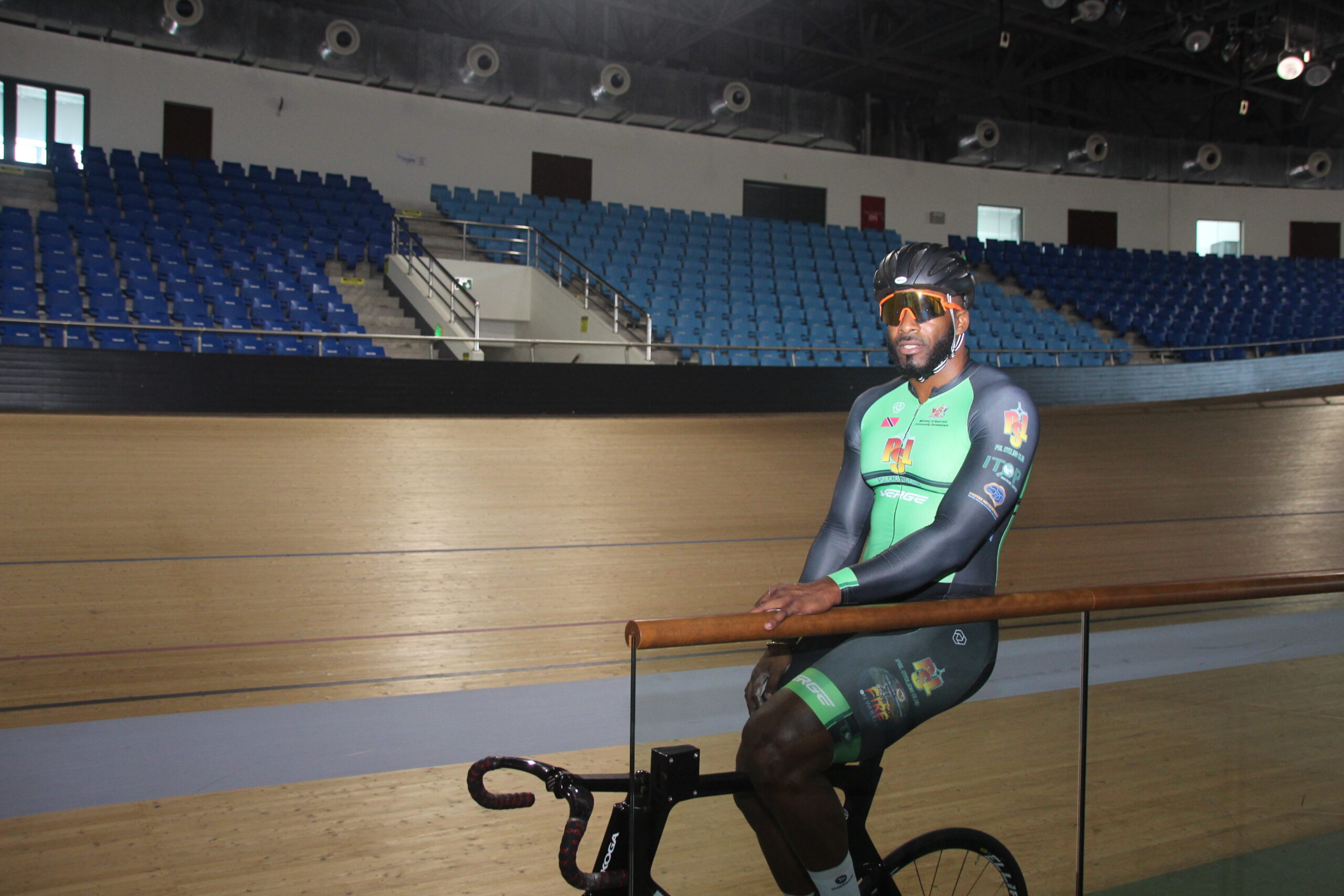
Q: How does training at the National Cycling Velodrome compare to the Arima Velodrome (where he first started)?
We’ve come a long way. Now you no longer have to wonder about getting used to a facility when you go to an event. It’s right here, which makes training easier.
Q: What are your cycling goals for 2024?
I am a Hindu, and at the beginning of the year I always write everything I would like to accomplish for that year—sport, academics, my personal life—and I would place it where I would pray. I believe that whatever I achieve (and if I do create that very small chance of the Olympic Games into a reality) it would always have been for me. Now I think my main focus has to be on the Pan American Cycling Championships, and I have to do well there, and if there’s any opportunity for me, it will materialise at that moment. So, this is where things are for me right now. I think my first goal is to do something really amazing at the Championships in April before I look at the [other events].
Q: What’s your Olympic goal?
The thing is the Olympics there’s a very small chance for me because it will be dependent, for example our other rider, Nicholas [Paul]. He’s doing amazing and once he continues to push this year, it should open maybe another spot or so. Then from there, based on performances from the Pan American Cycling Championships, it basically will be the fastest second rider. So, for me, one of my main intentions as well, last year I was able to get a silver medal at the Pan American Championships and once I can medal again this year, that would be a [major] focus for me. As the season progresses, I think that I can probably go to maybe one or two nations cups, again depending on the form itself and we have the World Championships way down to the end of the season like in October, so there’s lots of preparation for that. So, in terms of the sport itself, this is an Olympic year. Hopefully I can make the best of that small chance I have, make the best to bring it more into reality.
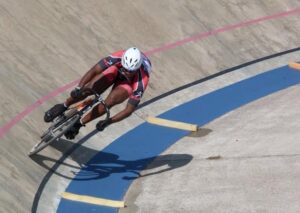
Q: What’s your views on life beyond cycling?
About two weeks ago I turned 30 and I was also doing a degree in exercise science. I’ve been with the national team for about 15 years or so, I’ve been to all the other competitions. Of course, I’m not going to qualify off the field [by] doing my degree and things like this and not try to [pursue a different career at some point]. If I see that there isn’t much funding involved in the sport, then of course I don’t see the need to continue. I’m just of that age, I’m no longer 23-24. I’m at the age where you look at different paths in your life, you look at different objectives you’d also like to achieve.
Q: What does some of those objectives look like?
One of them for me is education, I’d like to get my Masters and things like that. So especially with the sport moving through, maybe if it’s just like 2-3 years, it just depends on the funding. Of course, you have to make a life for yourself at the end of the day, so this is the way in which I believe my directions will go. Also, I know the captain of the bobsled team, and about two years ago he wanted me to join them, and I said, ‘I still have aspirations in my sport’. Maybe I’ll take up a new challenge in bobsled [at some point] (chuckles). But, yes, it’s for me just having fun now, I take everything in stride.
Q: Any advice for budding athletes?
Be the pilot in your life. Don’t let others control your destiny. That should not be. Because at the end of the day, you [should be] the one controlling your destiny. The day you stop a sport, it has to be because you made that conscious decision. Also, be accountable for yourself, your actions. This will show that you are the pilot in your own life.
SporTT wishes Quincy all the best in his future endeavours both on and off the track!
